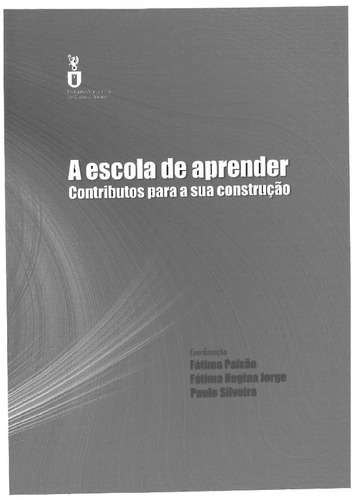Validating research project through focus groups: a case study of learning outside the classroom
Autor(es) y otros:
Editor/Coord./Trad.:
Palabra(s) clave:
Focus Groups
Validating Projects
Evaluating Rojects
Fecha de publicación:
Editorial:
Instituto politécnico de Castelo Branco-Portugal
Citación:
Descripción física:
Resumen:
Frey and Fontana (1993) define focus groups as group interviews or group debates whose objective is to encourage interaction among the participants and to analyze the aforementioned interaction instead of asking the same questions or list of questions to each participant of the group. Focus groups allow the researcher insight into the interpretations and arguments that participants often present in group situations, regardless if the members of the group know each other or not. These focus groups can be equally useful as the sole research methodology, or can form part of a mixed research method (Barbour, 2013) and, in addition, they can be used to assess and/or validate research projects. In this summary we examine how focus groups were used in the project “Oral communication in English in compulsory education: cultural heritage as an experiential context”, carried out at the University of Oviedo. In this project, focus groups played an important role in assessing and validating the project “Learning Outside the Classroom”. This project was designed to explore a novel way to promote oral communication in English classrooms of compulsory education using cultural heritage both as a resource and as a context combining classroom work with outdoor activities and learning in non-formal spaces to improve and student motivation. Three focus groups were developed during the research process. The first two groups convened at the University of Oviedo and the third group was organized at the Institute of Education at the University College London. Primary and secondary school teachers participated in the first focus group. Forming the second group were professors from the University of Oviedo experts in Language and Literature Didactics, along with English language counsellors from the Teachers and Resources Centres in Asturias, Spain. Finally, the last group, part of a research internship, was made up of lecturers from different departments of the mentioned Institute of Education. Once the focus groups were finished, a report containing the results and conclusions provided information useful to modify and improve certain aspects of the project.
Frey and Fontana (1993) define focus groups as group interviews or group debates whose objective is to encourage interaction among the participants and to analyze the aforementioned interaction instead of asking the same questions or list of questions to each participant of the group. Focus groups allow the researcher insight into the interpretations and arguments that participants often present in group situations, regardless if the members of the group know each other or not. These focus groups can be equally useful as the sole research methodology, or can form part of a mixed research method (Barbour, 2013) and, in addition, they can be used to assess and/or validate research projects. In this summary we examine how focus groups were used in the project “Oral communication in English in compulsory education: cultural heritage as an experiential context”, carried out at the University of Oviedo. In this project, focus groups played an important role in assessing and validating the project “Learning Outside the Classroom”. This project was designed to explore a novel way to promote oral communication in English classrooms of compulsory education using cultural heritage both as a resource and as a context combining classroom work with outdoor activities and learning in non-formal spaces to improve and student motivation. Three focus groups were developed during the research process. The first two groups convened at the University of Oviedo and the third group was organized at the Institute of Education at the University College London. Primary and secondary school teachers participated in the first focus group. Forming the second group were professors from the University of Oviedo experts in Language and Literature Didactics, along with English language counsellors from the Teachers and Resources Centres in Asturias, Spain. Finally, the last group, part of a research internship, was made up of lecturers from different departments of the mentioned Institute of Education. Once the focus groups were finished, a report containing the results and conclusions provided information useful to modify and improve certain aspects of the project.
ISBN:
Colecciones
- Capítulos de libros [6535]
- Ciencias de la Educación [1072]
Ficheros en el ítem




